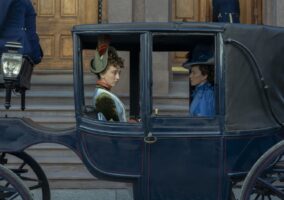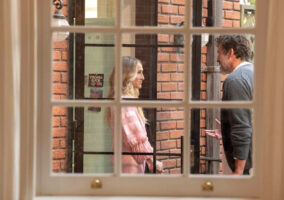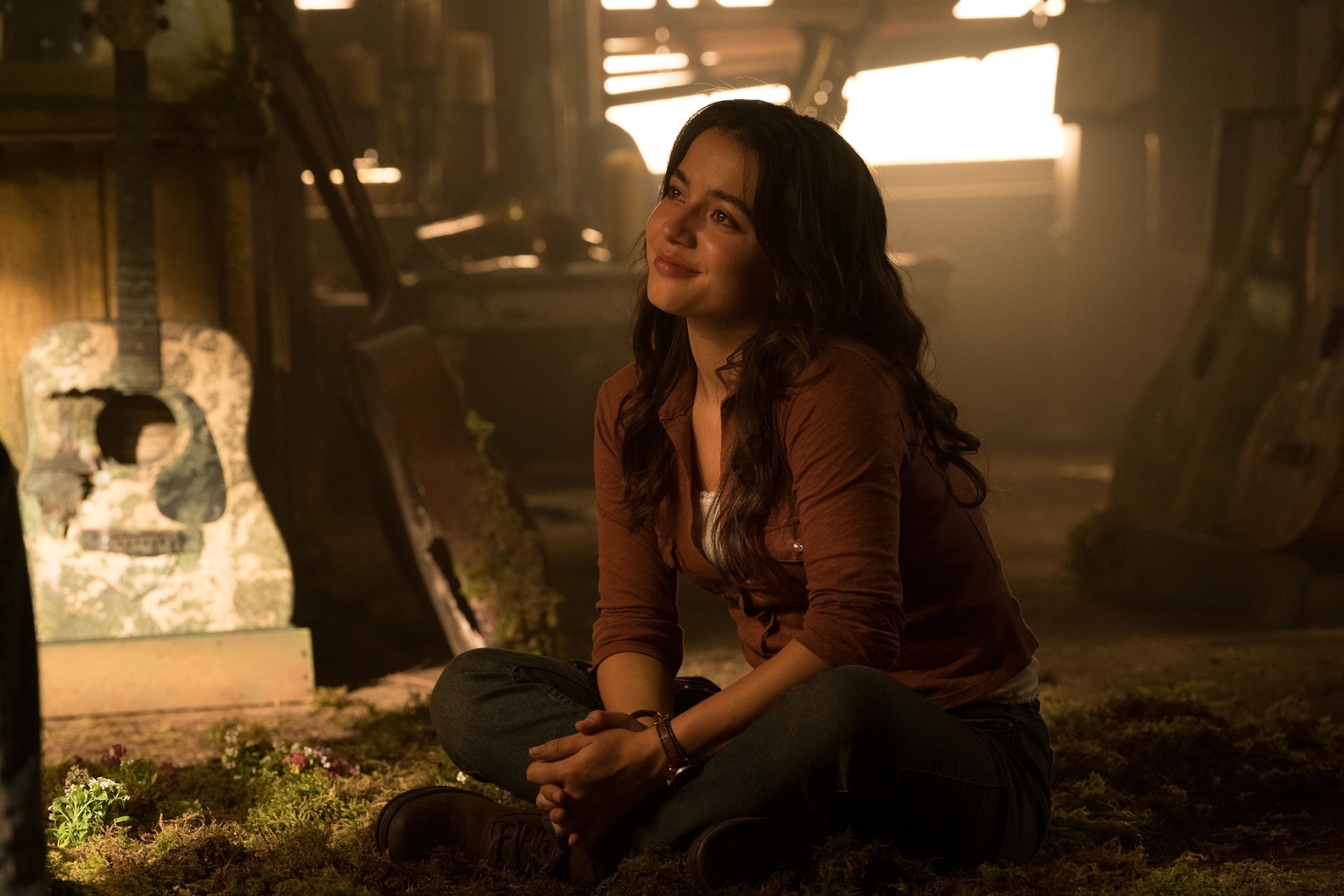
“What’s with all the rainbows?”
“I don’t know. Maybe they were all optimists.”
You could look at the above exchange, as Ellie and Dina enter Seattle and encounter their first queer community symbols, as a cutely ironic prelude to the emotional breakthrough they’ll have later in the hour. Just two queer girls riding through the gayborhood, oblivious to the struggles that happened before their time, just as they’re oblivious to the inevitability of their mutual attraction. It’s a tale as old as … well, gayborhoods, actually. But it made us incredibly sad; not for the queer people who once populated that community and made it vibrant, colorful and safe for its inhabitants, but for Dina and Ellie, for having no idea such a place existed.
One of the things The Last of Us has been very good about is telling a post-apocalyptic story that occasionally takes it time to remind the viewer that, for instance, women have health needs that become more challenging in a world without women’s products, that the elderly will have unique difficulties in an apocalyptic scenario, that mental health is as important as physical health, and also, by the way, that queer people exist and that this world is completely unequipped to provide them a safe space. After all, Ellie probably knows who Jennifer Aniston was dating in 2003, but she and Dina have absolutely no idea what a rainbow flag represents because queer culture is ephemeral and, as of 2003, poorly documented. The Last of Us posits that it might be possible to rebuild a society after its total collapse, but it’s also very clear that certain parts of the before times will be lost forever. This is why Frank and Bill lived in seclusion for decades or why that one dude reacted badly to seeing two girls kissing. There’s no place for queer people in this world because queer people will be among the first to be swept aside and forgotten when the collapse comes and there will be too few of us left to create a safe space when civilization starts rebuilding. This is, for various painfully obvious reasons, a very hard thing for queer viewers to encounter in a TV show in 2025 (when queer people are once again being targeted for elimination) and we’re grateful to writers Neil Druckmann, Craig Mazin and Halley Wegryn Gross for forcing the viewer to wrestle with it.
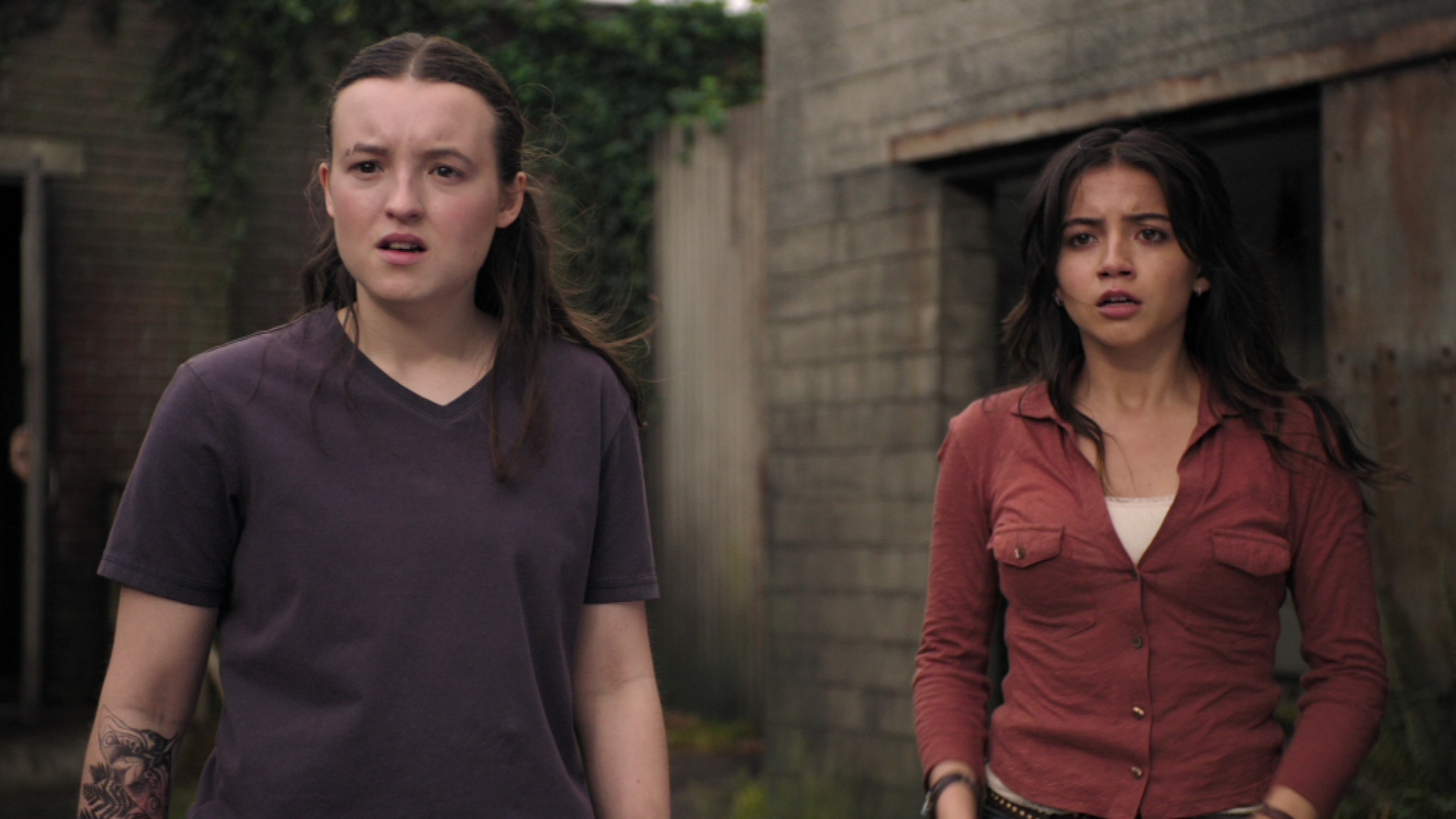
We might have liked a deeper exploration of why it’s so terrible that Ellie has no idea what a rainbow flag is, but for storytelling purposes, it’s more important that we get this girl good and laid in love before the darkness comes again, and on this show, you do that by putting a musical instrument in their hands. On the one hand, we originally felt the staging of the scene in the music store of Ellie singing “Take On Me” with a miraculously well-preserved guitar was a too-obvious attempt to recreate the magic of last season’s Emmy-winning scene of Bill (Nick Offerman) singing Linda Ronstadt’s “Long, Long Time” to Frank (Murray Bartlett); so obvious that it immediately inspired a cynical response in us. You can’t force these sorts of things and the scene between Offerman and Bartlett was beautiful partly because it was so unexpected. “Get your own trope,” these two middle-aged gays may have briefly muttered, in defense of the greatest depiction of middle-aged male love we’re likely to ever see. But Isabela Merced’s acting in this scene took our breath away and had us in tears by the time the song was over, exactly the same way the earlier scene managed to do. It’s not easy to depict the moment a person falls in love without lapsing into cliche or overacting, but she did an absolutely beautiful job of it. But while that type of moment was enough to get Bill and Frank to rush into each other’s arms, these two post-apoc queer girls who have no idea what a rainbow flag is need a little more of a push. And it came right around the moment the episode needed a little juice.
We should take this moment to give Merced her due, because coming in to fill Pedro Pascal’s shoes and also to make herself a believable love interest for Ellie is a really tough position for an actress to find herself in, but she manages to imbue Dina with a Pascal-like “Fuck it, we ride” cockiness that’s charming as hell but also dead sexy. She’s not broody and self-torturing the way Joel was, but we can see why Ellie is so taken with her. We can also see how this mutual attraction could be extremely dangerous for the two of them – and not because of the lack of rainbow knowledge in the world around them. They’re too cocky, sauntering into a situation about which they have no information. “I thought they bombed this place?” Dina asks, when they first enter Seattle. To us, the phrase “going to Seattle” comes with too many assumptions and foreknowledge to even quantify (not least of which is that the city is still standing), but to two young women whose understanding and experience of the world is incredibly limited, not to mention the world itself being incredibly fucked up, this trek should be treated with more caution than it is and it’s alarming to watch the two of them loudly stumble their way into a tank or breaking into the WLF compound with a level of bravado that borders on the insane.
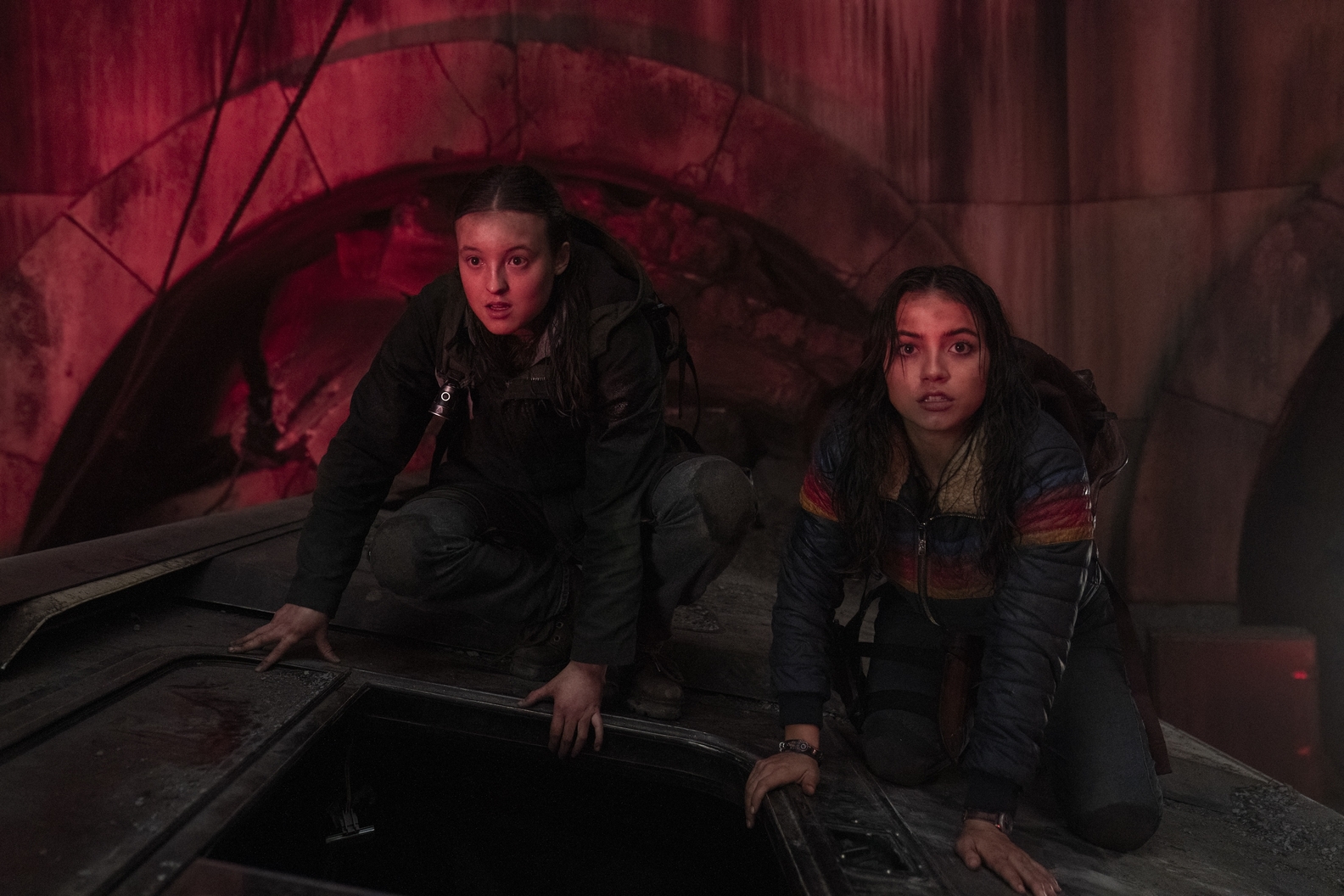
To be fair, as cocky as Dina is, she does seem to have a better handle on the likely failure of their mission and she keeps trying to get Ellie to see things more strategically and less emotionally. But she’s also too flippant about the danger they’re in; a quality that only becomes more pronounced and disturbing when she reveals that she’s pregnant. All of this – their naivete, Ellie’s blind rage, Dina’s fatalism, their mutual attraction, the lack of safe spaces for them to explore it – came to a head brilliantly with that stunning action sequence (which clearly was lifted straight from the game) in the subway, when Ellie offered her own arm to an Infected in order to save Dina. More than the love song, that was the most romantic moment in the episode, and it was followed up by a near perfect scene of Dina coming to terms with having to kill the love of her life while Ellie desperately tries to get her to believe the truth. It culminates, as these things tend to do, with sex. We’re being sarcastic, but it was a fantastically cathartic moment when both women accepted the truth of the other one and slammed together like all of the forces in the universe were incapable of keeping them apart.
We know that there’s much more to be unpacked in this episode, not least being Jeffrey Wright’s debut as Isaac. But the endless string of psycho warlords and cult factions on The Walking Dead was ultimately what killed our interest in the show, so it just doesn’t register with us as much as a really good depiction of queer love. Still, Wright is such a charismatic actor that you can’t take your eyes off him, even when he’s doing a standard “Villain monologuing about aesthetics while torturing someone” scene. We don’t find characters like this very interesting anymore, but we’ll have no problem watching Wright fill these shoes and hopefully take the character somewhere interesting.
[Photo Credit: Liane Hentscher/HBO]
Catherine, Princess of Wales Attends the Military Procession for the 80th Anniversary of VE Day Next Post:
Charlize Theron Fronts Christian Dior’s First High Jewelry Ad Campaign
Please review our Community Guidelines before posting a comment. Thank you!

